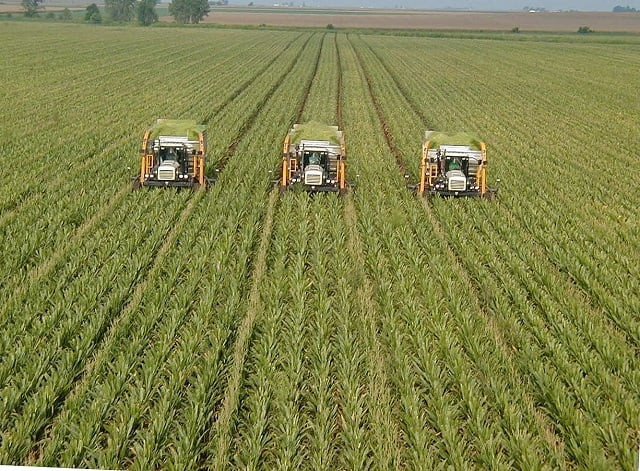Intercropping method to cut food import bill
Researchers optimistic of positive results

A team of young Pakistani agricultural scientists at the National Research Centre of Intercropping (NRCI) at the Islamia University of Bahawalpur (IUB) are researching strip intercropping technologies to help the country shrink its import bill of food commodities, especially soybean.
It was remarkable that the ongoing work there originated from their collaboration with China, but has been optimized specially for Pakistan based on the country’s realities, which has been a shining model of Sino-Pak cooperation in both scientific research and educational exchange, the China Economic Net (CEN) reported on Wednesday.
Since 2018, Dr Muhammad Ali Raza, a postdoc, who graduated from the Sichuan Agricultural University (SAU), China, has started to promote China’s maize-soybean strip intercropping technology in Pakistan with his professor Yang Wenyu’s support and guidance, which has received a good response, particularly from local industrialists and progressive farmers in the recent years.
After years of hard work, he has become a productive agronomist and expert in intercropping research in Pakistan.
Under the vision of the IUB Vice Chancellor, Prof. Athar Mahboob, the NRCI was inaugurated on August 11, 2021, to introduce strip intercropping technologies in Pakistan’s agriculture to improve crop yields and soil productivity. Now, Dr Muhammad Ali Raza acts as the Director of the centre, leading intercropping technology’s popularization in Pakistan.
To date, the centre has already developed and optimized the Chinese maize-soybean strip intercropping technology according to local conditions and conducted trials on the wheat-soybean strip intercropping.
The centre is also researching the different row configurations, particularly the wider strips, to encourage the mechanization of strip intercropping systems with existing farm machinery in Pakistan.
Following the slogan of “Think Globally, Act Locally”, Sino-Pak cooperation is a special feature of NRCI.
The centre has signed multi-dimensional MoUs with Sichuan Agricultural University (SAU), Gansu Academy of Agricultural Sciences (GAAS), and Shandong Academy of Agricultural Sciences (SAAS) to exchange resources, researchers and students, and also has initiated collaboration with the National Soybean Centre (NSC), Agro-ecology and Conservation Lab, and Molecular Biology Lab at the Nanjing Agricultural University (NAU).
Published in The Express Tribune, March 2nd, 2023.



















COMMENTS
Comments are moderated and generally will be posted if they are on-topic and not abusive.
For more information, please see our Comments FAQ